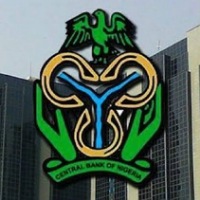Banking
FDI at risk over impeachment threat – Analysts
The impeachment threat on President Goodluck Jonathan over the poor budget implementation is causing uncertainty and may put a caution tag on Nigeria as an investment destination, analysts at Partnership Investment Company said.

By LAZARUS IBEABUCHI
The impeachment threat on President Goodluck Jonathan over the poor budget implementation is causing uncertainty and may put a caution tag on Nigeria as an investment destination, analysts at Partnership Investment Company said.
 While the outrage continues over the poor implementation of the 2012 budget, the challenges confronting the economy have not abated, the company said in its weekly report, adding that corruption, insecurity, poor infrastructure and the asymmetry between the level of growth and actual development remain the issues confronting Nigeria.
While the outrage continues over the poor implementation of the 2012 budget, the challenges confronting the economy have not abated, the company said in its weekly report, adding that corruption, insecurity, poor infrastructure and the asymmetry between the level of growth and actual development remain the issues confronting Nigeria.
“While GDP is growing at about 6%, the impact on the citizens in terms of quality of life is not so obvious. Electricity power supply remains the major infrastructure deficit currently confronting the country. Last week, the Bureau of Public Enterprises (BPE) received 54 bids from potential investors in the 11 electricity distribution companies in the ongoing privatization of the Nigerian power sector.
“A fortnight ago, the BPE received bids from 25 investors for the six generation companies while the Transmission Company of Nigeria has already been handed over to Manitoba Hydro International of Canada.”
The analysts said this exercise marked the first concrete effort by government to tackle the power shortfall. “We expect that if this process is conducted in a transparent manner, the country may finally be on its way to solving the power conundrum.”
Taking a cursory look at the nation’s apex bank activities, the company said the recent Central Bank policy to reduce the net open position of banks from three per cent to one per cent of shareholders fund, increase the Cash Reserve Requirement (CRR) from eight per cent to twelve per cent and restriction of cash movement between repo window and interbank lending and foreign exchange auction has tightened liquidity.
“This has raised the cost of funds in the system with the attendant implication for the economy. We expect this trend to persist until release of funds to the tiers of government, which will also be followed with funds mop-up of the Central Bank. The restriction of funds movement in the money market may actually be pushing funds to the stock market as seen by the rise in market performance indicators during the week.”
On its sectoral analysis of the Conglomerates Sector of the Nigeria Stock exchange, the company said thatthe market downturn took its toll on the sector shedding 1.5 per cent in market capitalisation in the last two months. From N94.44 billion or 0.74%, the total market capitalisation of the six equities listed in the sector have dropped to N93.02 billion or 0.72%.
“As the most diversified sector on the bourse, firms listed face the same challenge as other manufacturing and trading concerns in the country. The challenge of poor infrastructure, volatile exchange rate and inconsistent government policies all combine to create a hostile operating environment.
“However, many firms have adopted backward integration, relying more on local raw materials and less on importation in order to leverage on economies of scale and develop local competences. This has become strength for such firms. For instance, Transcorp has delved into agricul-ture while also developing other areas to generate revenue. UAC of Nigeria has also done some restructuring of its business pursuits, divest-ing from some subsidiaries and investing in others.”
The analysts added that the major threats faced by firms in the sector include change in income distribution, which can affect spending pattern and power, as well as inflationary trends which can alter individual and business behavior, and that the weakness is in the operating environment where indiscriminate fiscal and trade policies deny local businesses the competitive edge to operate. The importation of foreign goods has led to near collapse of the local manufacturing sector.
Banking
Millions of customers still stranded worldwide 24 hours after GT Bank online operations suffered attacks
By Yemie ADEOYE
GT Bank, one of Nigeria’s leading banks, with operations across Africa and the United kingdom, and with an asset base of about US$3.11 trillion is under a cyber attack which has left millions of its customers across the world stranded in the last 24 hours.
The bank which was renowned for its seamless online operations at inception has suffered dwindling online efficiency in recent years and this current attack didn’t come as a surprise to many of its numerous customers. However, it is becoming worrisome that over 24 hours after its online operations went down, the bank has not been able to arrest the situation and restore its online services.
Several customers of the bank took to their X (formerly known as twitter) handles to express their frustrations at the bank, as several of the customers in the diaspora are unable to access their accounts and carry on with their transactions. A customer , Jeff55 who lamented on his X handle about the development, stated that it is a thing of shock that a bank of this size couldn’t afford to have the necessary tools and experts to ensure a full protection of its online operations in this age and time.
Another customer Dimma stated that while Cybersecurity training may seem tedious, the recent #GTBank hack is a stark reminder that everyone is just a click away from a devastating attack.
Several media organisations had reported that hackers have stolen GT Bank website, and intercepted customers Data in massive phishing operation.
At the time of filing this report, Biztellers.com.ng checks on the banks website shows that it is still down and unaccessible, and neither GT Bank media and communications unit nor any of its agencies or surrogates have commented officially on the development.
Banking
Tinubu commends increased crude production to 1.61 mbpd
Says output surge buoyed by reforms he announced in May 2024 to address gaps in PIA
President Bola Ahmed Tinubu on Sunday declared a resurgence in the oil & gas industry, commending the increased crude production to 1.6 million barrels per day.
The president, who said this in a national broadcast, maintained that the resurgence was buoyed by the reforms he announced in May 2024 to address the gaps in the Petroleum Industry Act (PIA).
Nigeria’s crude oil output got a boost to 1.61 million barrels per day in July 2024 through the president’s directive and the industry leadership provided by the Nigerian National Petroleum Company Limited (NNPCL).
Acknowledging what he called a resurgence of the once-declining oil and gas industry in his Sunday-morning broadcast to the nation, President Tinubu said that oil investors are coming back to Nigeria.
He said; “Our once-declining oil and gas industry is experiencing a resurgence on the back of the reforms I announced in May 2024 to address the gaps in the Petroleum Industry Act. Last month, we increased our oil production to 1.61 million barrels per day, and our gas assets are receiving the attention they deserve. Investors are coming back, and we have already seen two Foreign Direct Investments signed of over half a billion dollars since then.
Read Also : BREAKING: Sell Crude To Dangote Refinery In Naira – Tinubu To NNPC LtdRead Also : BREAKING: Sell Crude To Dangote Refinery In Naira – Tinubu To NNPC Ltd
“Fellow Nigerians, we are a country blessed with both oil and gas resources, but we met a country that had been dependent solely on oil-based petrol, neglecting its gas resources to power the economy.
We were also using our hard-earned foreign exchange to pay for and subsidise its use. To address this, we immediately launched our Compressed Natural Gas Initiative (CNG) to power our transportation economy and bring costs down.
This will save over two trillion Naira a month, being used to import PMS and AGO and free up our resources for more investment in healthcare and education.
“To this end, we will be distributing a million kits of extremely low or no cost to commercial vehicles that transport people and goods and who currently consume 80% of the imported PMS and AGO.
“We have started the distribution of conversion kits and the setting up of conversion centres across the country in conjunction with the private sector. We believe that this CNG initiative will reduce transportation costs by approximately 60 per cent and help to curb inflation.”
Banking
FBN Holdings On Course For AGM

Plans are in top gear for the 11th Annual General Meeting (AGM) of the FBN Holdings Plc.
The management made this disclosure in a notice it filed with the Nigerian Exchange Limited (NGX) on Thursday, where it averred that it has not been served with any court order against the proposed AGM.
According to notice, which was signed by the acting Company Secretary, Adewale Arogundade, FBN Holding said, “The attention of FBN Holdings Plc (the Company) has been drawn to recent media reports purporting that the Company has received a Court Order stopping it from holding the Annual General Meeting (AGM) scheduled for August 15, 2023.
“We confirm that this assertion is a false narrative as the Company has, as at the date hereof, not been served with any court order to stop the forthcoming AGM.
“Suffice to mention that the AGM is a statutory meeting of Shareholders that must be held in accordance with the law, further to which the Company will notify the regulators and the public as appropriate if there is any lawful order to restrain the Company from conducting same.
“We hereby assure our esteemed Shareholders that the AGM shall hold on August 15, 2023, as planned and we look forward to their attendance and active participation at the meeting.”
However, court orders published in national dailies showed that the Federal High Court in Lagos had issued an order against the financial institution, barring it from holding its 11th AGM.
The order was entered pursuant to a petition by Olusegun Onagoruwa, in suit No: FHC/L/CP/1271/2022. It was addressed to the bank and some other bank officials.
It read, “Take notice that unless you obey the directives in the judicial order contained in the order made on July 15, 2022, by the Federal High Court, Lagos, by refraining from proceeding with the 11th Annual General Meeting of FBN Holdings Limited proposed for August 15, 2023, from seeking approval to issue or raise share capital in any manner whatsoever, from appointing or confirming the appointment of new directors, or in any other manner taking any step towards implementing, actualising enforcing resolution of the 10th Annual General Meeting of FBN Holdings Plc held on June 20, 2022, or in any other manner overreaching, disobeying or undermining the said order of a court, you will be guilty of contempt of court and you will be liable to be committed to prison and to there imprisoned.”
Biztellers brought you a report that a segment of shareholders had staged a protest at the headquarters of the bank on Monday, calling for the AGM to be held, as well as soliciting regulatory interventions.
It is expected that at the AGM, FHN Holdings is poised to breathe life into plans to seek shareholders’ approval to raise N150bn fresh capital via a rights issue and elect new directors including billionaire, Femi Otedola and Samson Ariyibi among other resolutions.











